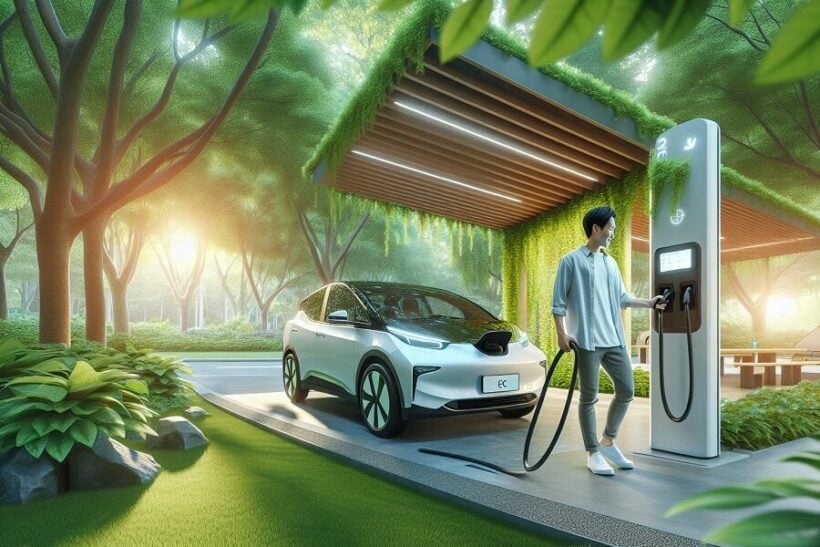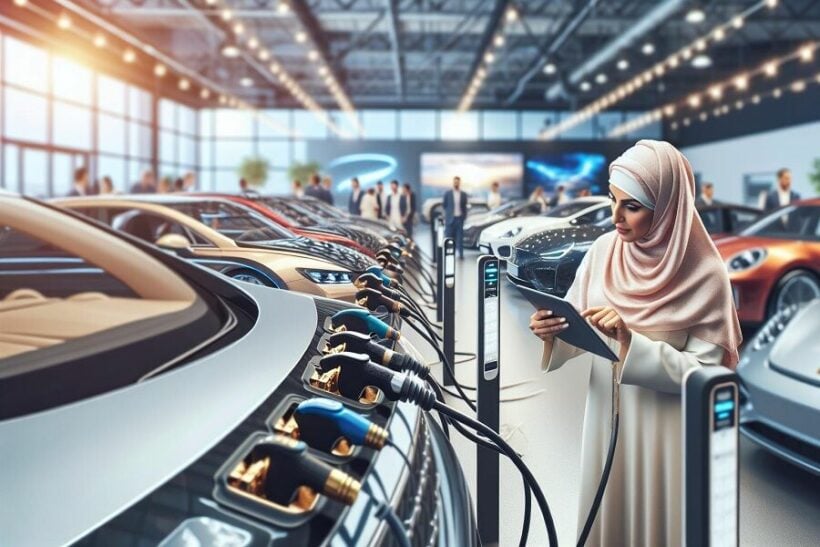Watts up with EVs? Decoding consumer attitudes

Electric vehicles (EVs) are rapidly carving out a niche in Thailand’s automotive landscape, spurred by a growing awareness of environmental concerns and the urgent need to slash greenhouse gas emissions. As traditional combustion engines increasingly fall out of favour, EVs are stepping up as the green alternative, promising a cleaner, more sustainable future on the roads.
Consumer attitudes towards EVs
Understanding how people view electric vehicles (EVs) sheds light on the shifting dynamics within the automotive sector. Your perceptions, driven by numerous factors, significantly influence the adoption rate of EVs. Let’s dive deeper into these aspects.
Factors influencing consumer perception
Several elements mould your views on EVs. Awareness is key; the more you know about EVs, the more likely you are to appreciate their value. Environmental consciousness plays a tremendous role, too, as a growing number of you prioritize sustainability. However, practical concerns such as charging infrastructure and driving range also weigh heavily on your minds. These aspects collectively shape your attitudes towards EVs and ultimately, your EV buying habits.
Benefits of EVs
The advantages of switching to an EV are compelling. Firstly, reduced emissions cater to your growing environmental awareness. Next, the lower operational costs make EVs economically attractive in the long run. Additionally, advances in technology are constantly improving the driving range of EVs, making them more versatile than ever before. These benefits not only align with consumer attitudes towards EVs but also encourage a shift in perceptions of electric vehicles.

Challenges to EV adoption
Despite the growing interest, there are hurdles to clear. The initial cost of purchase remains a significant barrier for many of you. Concerns about charging infrastructure availability and the time required to charge EVs deter some potential buyers. Another point of hesitation is the range anxiety associated with EVs, influences consumer attitudes negatively. Awareness and education about the advancements in EV technology are crucial to overcoming these challenges.
Current market trends
The EV market is evolving rapidly, reflecting a shift in consumer attitudes towards green technology. The increase in EV buying habits signals a growing confidence in the viability of EVs as a primary mode of transportation. Governments worldwide are rolling out incentives, further boosting the EV market. As more of you become open to the idea of owning an EV, manufacturers are responding with a wider range of models to suit various needs and preferences.
Environmental impact of consumer choices
As you explore the vast landscape of electric vehicles (EVs), understanding how your choices influence the environment becomes crucial. Consumer attitudes towards EVs play a significant role in shaping a more sustainable future. Let’s delve into how opting for EVs over traditional vehicles can reduce carbon emissions, promote sustainable practices, and mitigate the impact of climate change.
Carbon emissions
Choosing an EV makes a bold statement about your commitment to slashing carbon emissions. EVs have zero tailpipe emissions, dramatically reducing the pollutants released into the atmosphere. This shift in consumer buying habits from gasoline-powered vehicles to EVs can significantly lower the carbon footprint associated with personal transportation. It’s a direct action you can take to contribute to cleaner air and a healthier planet.
Sustainable practices
Your perceptions of electric vehicles might evolve as you learn about their role in fostering sustainable practices. The lifecycle of an EV, from production to disposal, is designed with sustainability in mind. Manufacturers increasingly use renewable energy sources and recyclable materials, striving to make EVs more environmentally friendly. By choosing an EV, you’re not just buying a vehicle; you’re endorsing practices that conserve resources and reduce reliance on fossil fuels.
Impact on climate change
The decisions you make today have a profound impact on the future. Adopting EVs is more than a consumer trend; it’s a step towards curbing the effects of climate change. By reducing greenhouse gas emissions, electric vehicles help slow global warming and contribute to stabilizing our climate. Embracing EVs aligns with global sustainability goals and demonstrates a collective responsibility towards protecting our planet for future generations.
Motivators for EV purchase
When you’re considering joining the electric vehicle (EV) revolution, understanding what drives others to leap can be incredibly illuminating. Consumer attitudes towards EVs have evolved significantly, indicating a shift in EV buying habits. Various factors motivate this change, from environmental concerns to the allure of new technology.

Perceptions of electric vehicles have significantly influenced consumer attitudes. Initial scepticism has waned as the benefits of owning an EV become more well-known. Lower operational and maintenance costs, coupled with increased availability of charging infrastructure, have further sweetened the deal. The convenience of home charging means you can say goodbye to frequent visits to the gas station, a subtle but distinctly appreciated advantage.
Important factors for those considering buying an EV
When you’re eyeing up your first electric vehicle (EV), several critical elements heavily influence your decision-making process. Understanding consumer attitudes towards EVs, their buying habits, and overall perceptions can guide you toward making an informed choice.
Range anxiety? It’s a thing of the past
One of the key concerns that may have deterred you in the past is range anxiety. However, advancements in EV technology have vastly improved battery life. Modern EVs offer more drive range than ever before, easing worries about running out of charge on longer trips. Consumers are willing to invest more in EVs that promise extended range, proving how significant this factor is.
Charging infrastructure: Convenience is key
The availability and accessibility of charging stations are critical. Recent studies show that the likelihood of choosing an EV increases when there’s easy access to charging facilities. Government incentives to expand charging infrastructure have made it more convenient than ever to own an EV. This enhancement in infrastructure directly impacts EV buying habits, making it a smoother transition for new users.
Lower operational costs seal the deal
Running costs for EVs are significantly lower compared to traditional vehicles, which is a major selling point for consumers. The appeal of reduced maintenance expenses and the environmental benefits of operating an EV are considerable factors driving the shift towards electric mobility. When the running costs are less hefty on the wallet, your perceptions of electric vehicles inevitably become more positive.
Driving towards a greener tomorrow
Your environmental consciousness plays a pivotal role in the decision to transition to an EV. A growing number of you are recognizing that shifting to electric mobility is not just an upgrade in technology but a step towards reducing carbon footprints. This alignment of EV ownership with sustainable living further enriches consumer attitudes towards EVs.
If you’re in the market for an electric vehicle in Thailand, our comprehensive guide, “The Top 5 Electric Vehicles to Purchase in Thailand Today,” is an essential resource tailored just for you.
Latest Thailand News
Follow The Thaiger on Google News:


























